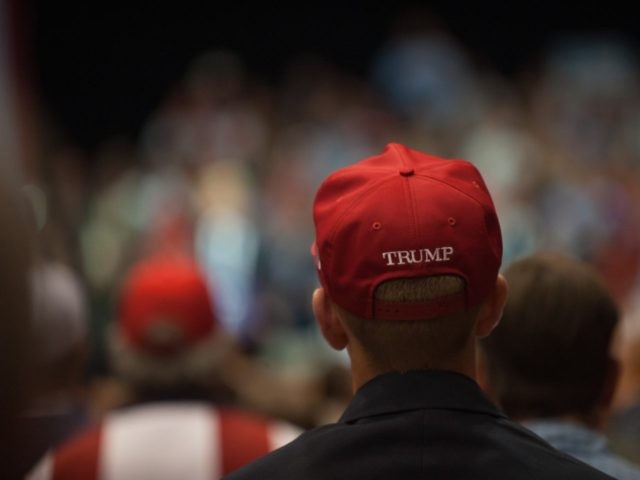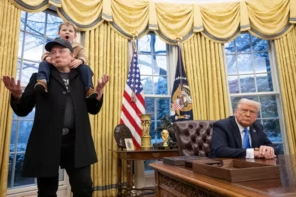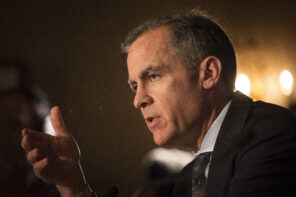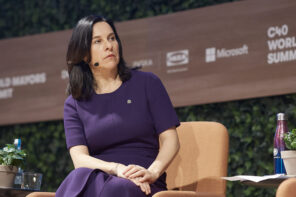On campus, the surprising election of Donald Trump was met with disbelief and horror. Everywhere on campus you can hear a range of reactions to the stunning result of the American Presidential election: most people criticize, belittle and mock the American electorate. We hear the loud – and often justified – voices of Trump’s detractors, but we do not seem to hear his supporters anywhere. This one-sided discussion might genuinely reflect the sentiment of the majority of students on campus. However, the surprising result of the election has told us that there isn’t enough political dialogue between two polarized sides. In a democracy, the failure between groups to engage in meaningful political dialogue translates into a fractured society punctuated with conflict and discord.
True, Donald Trump’s rhetoric has been divisive and his policies short on detail. Even Paul Ryan, his party’s leader in Congress, called some of his comments the “textbook” definition of racism. Trump’s failings need to be addressed: his racial intolerance and misconduct with women must not be normalized. Just as important, however, is the need for us to respectfully listen to the worldviews and concerns of the 60.8 million American voters that backed Trump.
In this spirit of democratic reconciliation, we reached out to some of Trump’s supporters on campus. After much searching, we found two McGill students willing to discuss their support for the President-elect: Max and Paul.*
Being a Trump Supporter on Campus
Both men observed a fear to identify as a Trump supporter on campus. They expressed a feeling of disenfranchisement from the rest of the student body.
“It’s really intimidating,” Paul confides. “I feel like I’m literally in hiding with my friends [from back home] literally being called sexist, racist bigots.” He points at the irony that “the party that preaches tolerance and peace has turned out to be the hateful party” that refuses to accept “something that’s really good” in the results of a free and fair democratic election.
Max also “almost never” speaks about Trump on campus because people will “absolutely discredit everything” he has to say about politics. To discuss politics, he “need[s] to keep it in a safe space.” He declined to meet at Second Cup, saying he “can’t even whisper” honestly in public without being criticized. (We met instead in his apartment.) He feels like the student body has collectively chosen to exclude all his ideas rather than engaging in an inclusive political dialogue.
Issue Priorities
The bottom line for both Max and Paul was the economy. They want a world where all Americans have good jobs and the means to support their loved ones. On realizing these ideals, both men decided that Trump’s ideas, though missing some details, were more likely to be effective.
America’s troubles, to Paul, stem from an anemic economy where the workplace has space for too few. He believes that with jobs and structure, America will be stronger to repel the troubles brought on through guns and drugs. Paul suspects that policies protecting jobs will ultimately protect communities: “When people have nothing to lose, they move to crime.” Trump’s “policies for protective tariffs until preferential trade agreements are made more fair and re-negotiated,” Paul argues, is the most important issue.
For Max, the most important factor behind his vote was the impact of immigration on the American economy. Citing neoliberal economist Milton Friedman, Max made the case for a controlled inflow of immigrants. With a more manageable immigration population, Max believes, Americans can keep their jobs while also maintaining welfare policies that would otherwise become unaffordable.
Max doesn’t agree with everything Trump has to say: “The wall is a stupid idea,” Max admitted. An environment that is “extremely accommodating to illegal immigrants disincentivizes people from following the rules,” and puts those who bide their time to immigrate legally at a disadvantage. Max suspects that America must decide between tightening the borders, or curtailing welfare because “if you offer welfare people come for handouts.”
News Media
Max and Paul both expressed skepticism of mainstream news media. To see past the “false reality,” they look to a diverse variety of news outlets, which includes CNN, Fox News, Zero Hedge, Al Jazeera, and more. On these alternative news sites, they found a “growing number of frustrated people.”
Though Paul apparently “laughed at the news […] it became such a joke”, he continued to consult mainstream news media regularly. To him the most flagrant failure of the news was evident on the day James Comey re-opened the Hilary Clinton investigation. Despite the bombshell announcement from the Director of the FBI, he claims CNN’s website focused on Trump’s tax returns. Both students felt that the media failed to have an open and honest discussion about the pros and cons of free trade or immigration, opting instead to focus on personality traits.
Devoid of a space to talk honestly about their political beliefs – both on-campus and in the news – Max and Paul turned instead to online forums. On the internet, both Max and Paul found others who felt similarly: virtual echo chambers matching the McGill’s liberal echo-chamber.
Toppling the System
Feeling stifled by the “media establishment,” it became a point of pride for Max and Paul to topple the existing political culture. Hilary Clinton, was the embodiment of this culture. Max described the President-elect as a self-funded “hand grenade” that would shock Americans out of the “learned helplessness” of a two-party system.
Max and Paul believe that their views, the ones they share with tens of millions of Americans, were so threatening that the media and the powerful refused to talk about them. They may be right. The issues they emphasized received very little attention from the media, scholars, and the public. It’s time to begin talking about them.
*Names have been changed to accommodate the requests of the interviewees.








